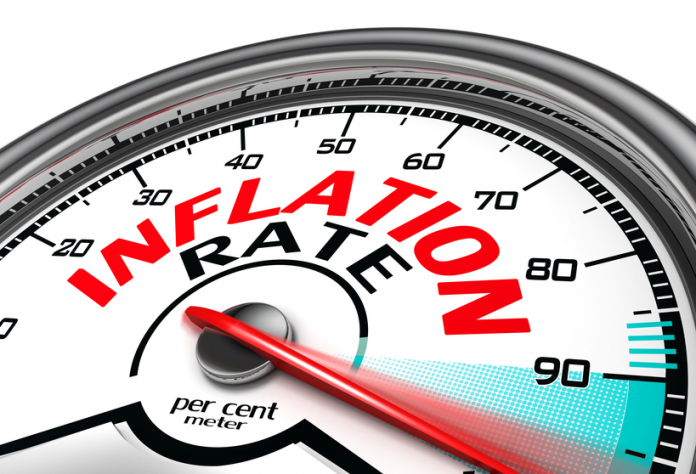MARKETS AND ECONOMY
Headline Inflation in Nigeria Maintains the Rising Trend to 22.04% in March 2023
Published
3 years agoon

By FDC Analysts
The NBS released the CPI report for March on Saturday (April 15) as scheduled. Contrary to our projection, headline inflation sustained its upward trajectory, rising by 0.13% to 22.04%. This is the third consecutive monthly increase and the highest inflation rate since September 2005.
The sustained uptick in consumer price inflation can be largely attributed to increases in the price of food and non-food items. The disruptive and aberrational effects of the initial cash squeeze and re-infusion of old Naira notes exacerbated inflationary pressures. It also brings to the fore the difference between inflation expectations and inflation psychology. The latter is driven by uncertainties surrounding demand, while the former is based on seasonalities (planting season).
Read Also:
A breakdown of the data revealed that all annual sub-indices moved in tandem with headline inflation, except rural inflation. For instance, month-on-month inflation, a measure of current price movement, rose by 0.15% to 1.86% (annualized: 24.67%).
Most inflation sub-indices increased in March
The food price index increased marginally by 0.1% to 24.45% while core inflation (inflation less seasonalities) jumped by 1.02% to 19.86%. The spike in core inflation is partly due to the rise in house rents (higher costs of building materials) and electricity tariff hikes (gradual phasing out of electricity subsidy). The sustained acceleration in core inflation suggests that inflation risks are elevated.
Rural inflation fell marginally by 0.01% to 21.09% whilst urban inflation rose sharply by 0.29% to 23.07%. This largely reflects the impact of inflation psychology and planting season. The urban-rural inflation gap rose to 1.98% from 1.68% in February.
Monthly inflation sub-indices increased
All monthly inflation sub-indices (measures the current movement of prices) increased in the month of March. This partly reflects increased demand due to cash availability
State by state Inflation
Borno state recorded the lowest inflation rate in March (19.18%), followed by Cross River (19.24%) and Benue (20.01%). These are major food-producing states. Benue is the Nation’s food basket while Cross River is the largest producer of rice and Borno is one of the major producers of grains.
The states with the highest inflation rates are Ondo (25.38%), Bayelsa (24.80%), and Lagos (24.66%). Most of these states are market points.
Outlook
Headline inflation is expected to increase in April as aggregate demand increases (Easter and Ramadan Celebrations). This would be compounded by supply shortfalls owing to the planting season. The continued acceleration in consumer price inflation increases the probability of another rate hike at the MPC meeting next month (25bps). The IMF has also urged the CBN to maintain a hawkish monetary policy stance to rein in inflation.
Share this:
- Click to share on X (Opens in new window) X
- Click to share on Facebook (Opens in new window) Facebook
- Click to share on WhatsApp (Opens in new window) WhatsApp
- Click to share on Pocket (Opens in new window) Pocket
- Click to share on Telegram (Opens in new window) Telegram
- Click to email a link to a friend (Opens in new window) Email
- Click to share on LinkedIn (Opens in new window) LinkedIn
You may like


Nigeria’s Inflation Decline to 15.15% in December 2025 Ignites Questions of Sustainability


Nigeria’s Inflation Moderates to 14.45% in November


Nigeria’s Economy at a Crossroads: Rising Debts, Eased MPR, and Cost to Citizens


JUST IN: Nigeria Posts 4.23% GDP Growth in Q2 2025


Nigeria’s Inflation Eases to 20.12% in August as Food Prices Retreat


Capital Importation: Foreign Investors Stake Fresh $5.6Bn on Nigerian Economy














